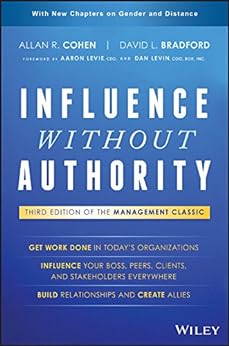Interview with Jeba Singh Emmanuel, Engineering Manager at Linkedin
Published on May 6, 2019
5 min read


Location: Sunnyvale, California
Current Role: Engineering Manager at LinkedIn
What’s your background and how did you get into management?
My transition to management was natural. I was the tech lead at SlideShare on the team that managed the upload and playback experience for a couple of years, and then, led the team that built SlideShare’s iOS app (LinkedIn’s first Swift app). I was also the tech lead on the desktop rewrite of the LinkedIn Feed on Ember.
I am a builder at heart – I’m driven to do whatever is necessary to make the product successful. This led me to take on more and more responsibilities (on top of those in core software engineering and design) across my projects. A few of these responsibilities I was especially drawn to were coaching junior engineers on career growth, planning out complex projects across multiple engineers, and getting multiple people together to solve complex and hard-to-solve problems. While I was quite happy leading some of the most interesting technology challenges at LinkedIn, it was ultimately the positive instances of being able to act as a mentor and guide my teams that stuck with me and nudged me to pursue management. I also felt that I wanted to expand into areas of product development beyond engineering, such as strategy, people management and team growth.
And I’m happy to share that the move did indeed help me expand and grow in these areas. A few months into my new management role, I empowered an engineer, who was looking for a change. We talked through his goals and his current responsibilities, and how they could be better aligned. Once I identified that he actually preferred to focus on a different piece of the technology stack, I set off into tweaking his responsibilities to allow for this. He had previously considered changing teams, but after the talk, he changed his mind and he stayed on to make the project a success. It was very exciting for me to be able to touch a person’s professional life in that way. It’s interactions like these that continue to motivate me.
What are the biggest challenges you face?
I enjoy knowing the details of everything I touch. I spend a lot of time understanding the technology, the product, and what others are working on since I am naturally curious about the details. But, as a manager, you’re not always able to maintain that close of a view on all of the specifics. While I wish I had more time to do so, I solve this challenge by trusting the team to be great at these details and being choosy about the areas I take a deep dive into.
What is your approach to hiring?
I look for three main things: passion, willingness to help others, and creative problem solving. I try to understand what has driven a person in the past and what motivates them on a day-to-day basis. For people with more experience, this means getting into the details of projects that they are proud of. This is very useful in shining a light on what goes on in their mind and what motivates them. Everyone brings a different perspective. People focus on different things at work and are motivated by different things, so spending time on making sure their motivation and the needs of the team are aligned is important.
What’s your advice for managers who are just starting out?
Different companies have different expectations from managers. A five-person team in a startup has very different needs from a larger team in a startup vs. a smaller team in a larger company. As a manager, you are responsible for understanding what is needed. Try to get very clear expectations. If possible, look for opportunities to help your manager with some management responsibilities to become familiar with what a manager does. LinkedIn has a program called the Apprentice Manager Program, which was really helpful for me when I started out. It had coaching sessions, training materials, and a lot of other helpful classes. LinkedIn also has other programs for managers, such as ManageIn and resources available on Linkedin Learning. If your company has similar resources, definitely take advantage of it.
What’s your work day like and how do you manage your time, emails, etc.?
A large chunk of my week is meeting people, mostly my immediate team, in one-on-ones. I then organize the rest of the day by choosing a couple of the most important goals to accomplish in the day. Once that is done, or in the breaks between them, I deal with any urgent and smaller issues that may crop up. Every couple of hours, I check emails, but don’t have push notifications turned on for both my phone and laptop to limit distractions. I do have Slack notifications turned on, but tweak notification settings when they get too noisy.
What’s a personal habit that contributes to your success?
I have recently gotten into a habit of planning my day using a straightforward framework:
- At the end of the day, I identify what my next day’s two big goals are, so I know to spend the next morning focused on those two goals.
- At the beginning of the day, I identify one concrete goal for each meeting I have on my calendar.
I remember to evaluate both at the end of the day to measure what I have completed and what needs to be done. I also look back at these once every couple of months to ensure I am strategically focused on the right goals in the big picture.
Share an internet resource or tool that you can’t live without.
Evernote. It is lightweight, syncs across all devices, and can be as simple as you want it to be. I use it to keep track of my meeting goals, my daily goals, and miscellaneous to-do’s-all organized as notebooks.
If you could recommend one book to managers, what would it be and why?
A couple: The Manager’s Path and Influence Without Authority. These books were very useful for me and I still read specific chapters from time to time. The Manager’s Path is a very practical guidebook to terminology around management, challenges every manager runs into at some point, and notes on how to tackle challenging scenarios. It is an amazing book and a must-read.
Influence without Authority provides a set of non-intuitive frameworks that are useful in your toolbox as a manager.
I would also recommend Fred Koffman’s videos on Linkedin. His videos provide clarity that may redefine how you look at interactions in your daily workday.
What is your approach to mentoring and coaching members of your team?
I believe coaching is about filling gaps. The style depends on the person, but for most people I have a strong relationship with, I focus on keeping an open conversation going and making sure members feel safe sharing the areas they are struggling with. I like to encourage my team to come up with ideas to do things better on their own.
Where can we go to learn more about you? (e.g., LinkedIn, Twitter, Blog, GitHub)
My LinkedIn, of course!






